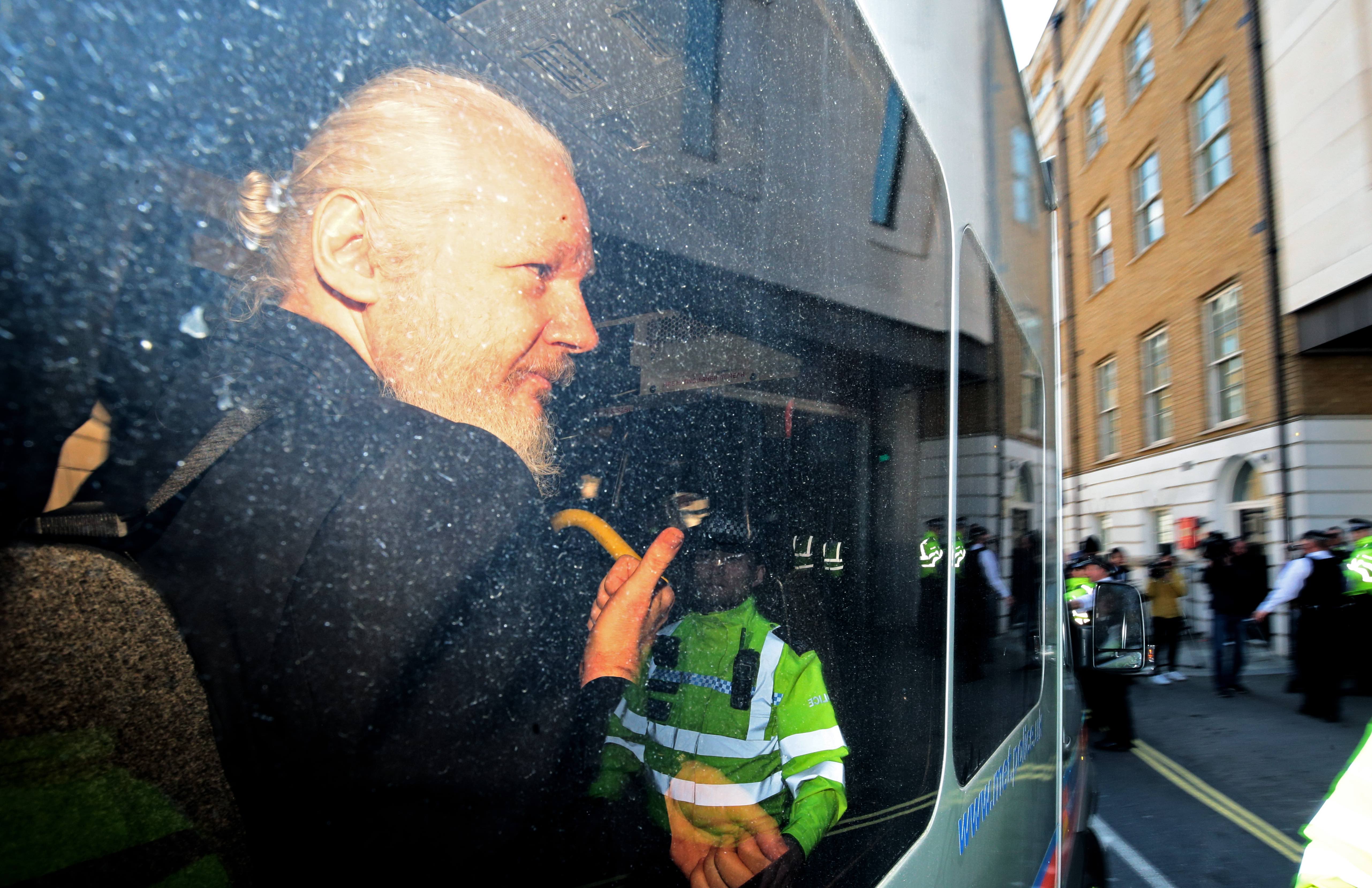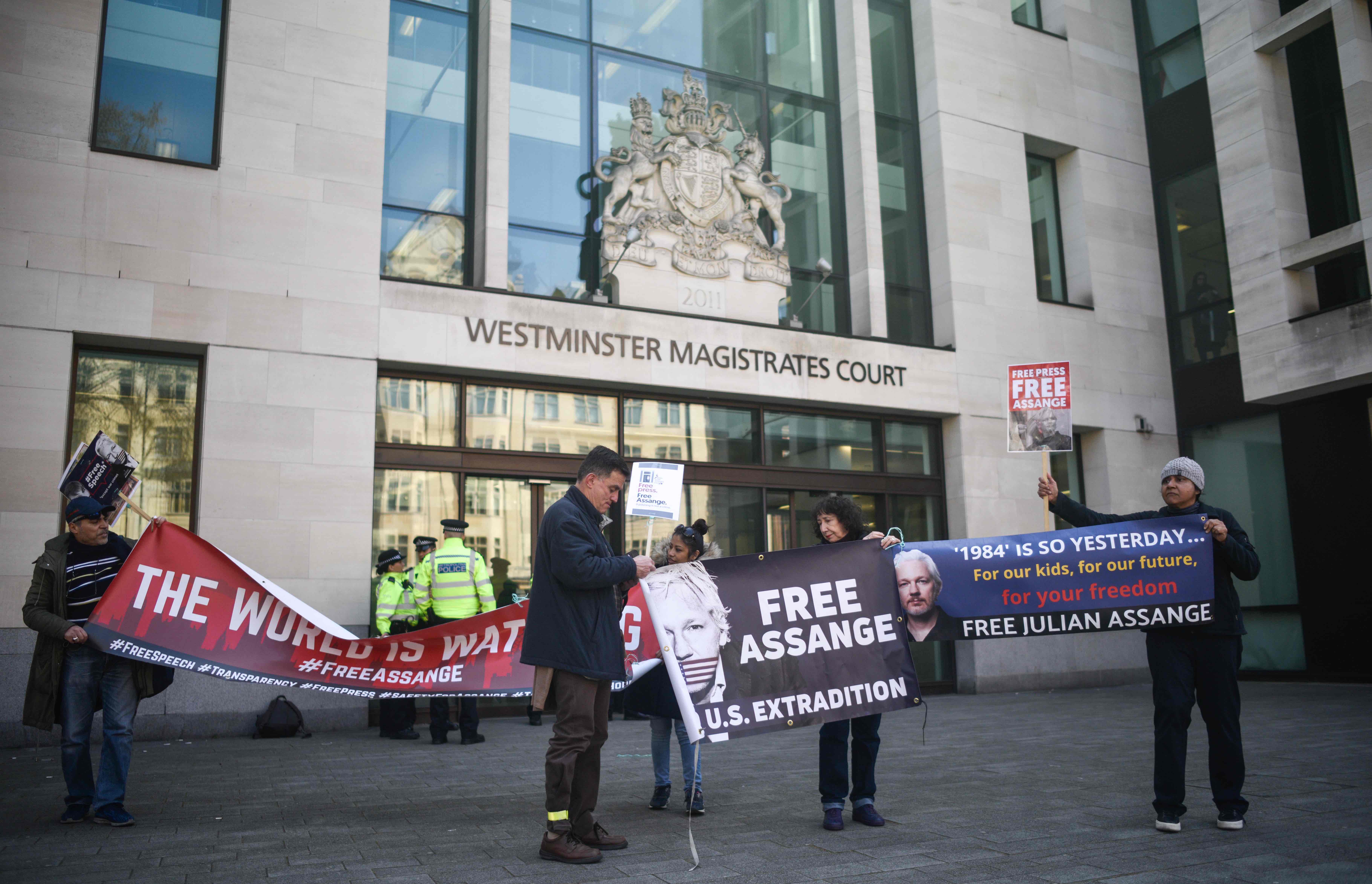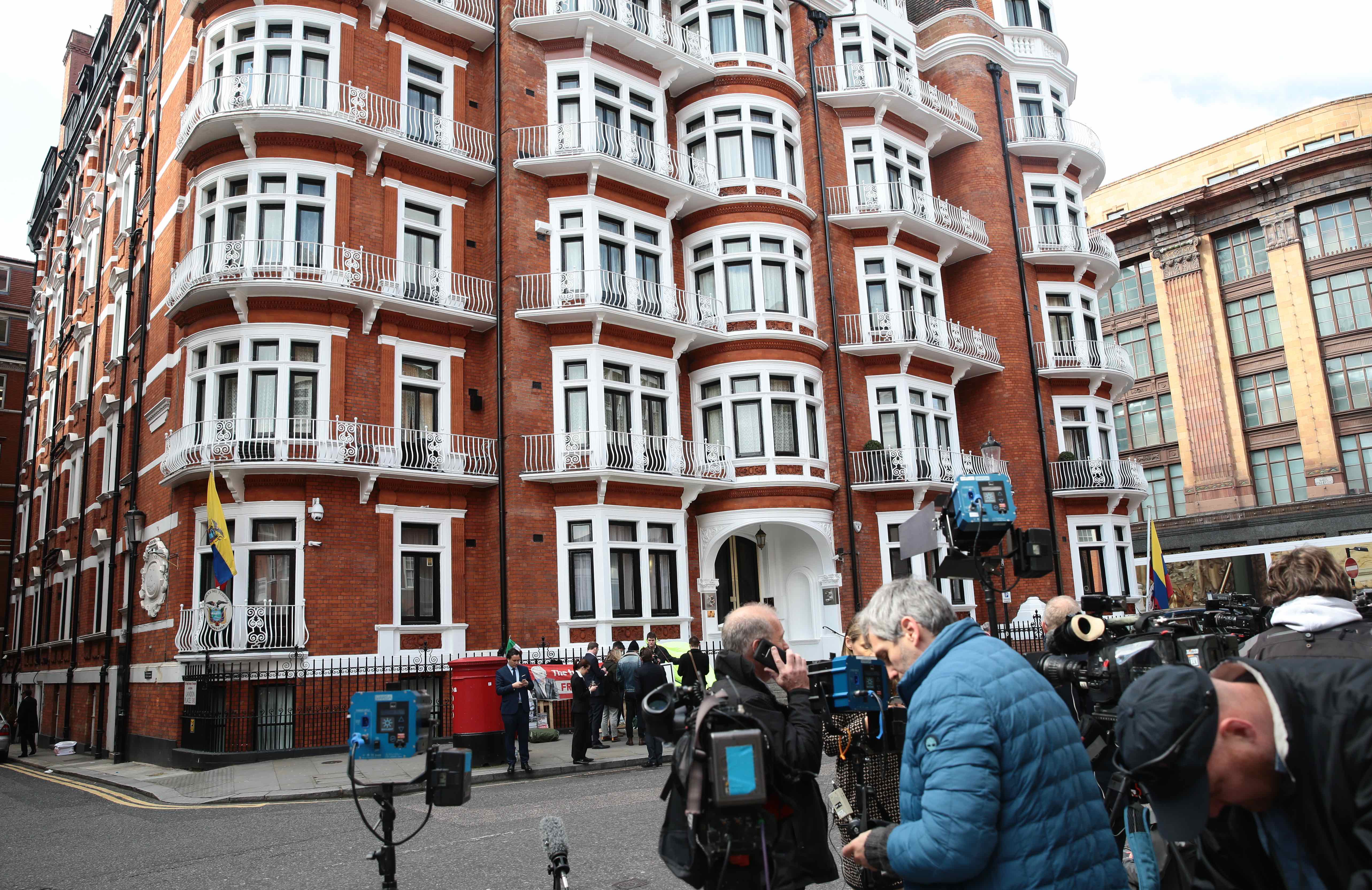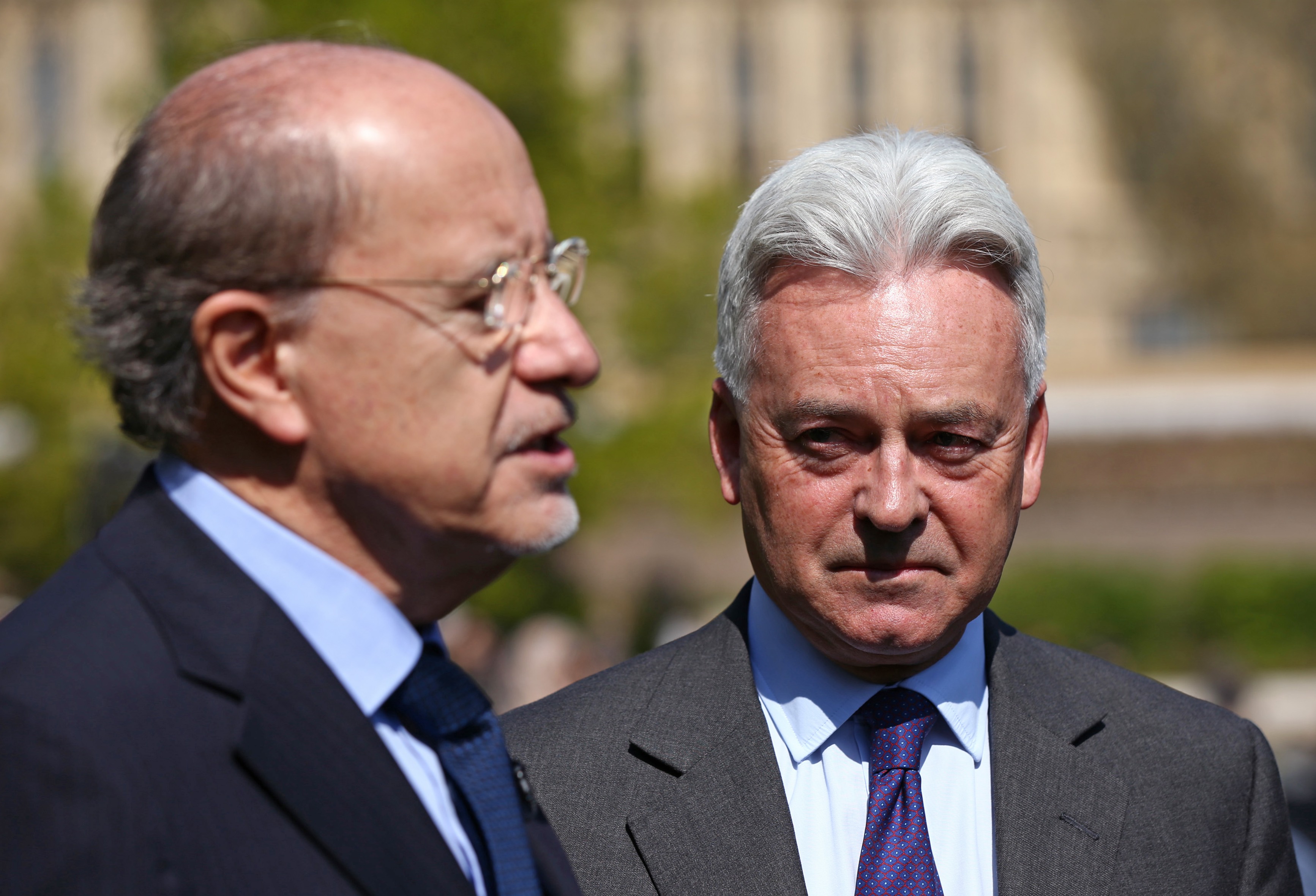
Politics & Society
Is the world suffering from treaty fatigue?

A changing interpretation of complex international laws and diplomatic treaties ended the WikiLeaks founder’s nearly seven-year stay in the Ecuadorian embassy
Published 14 April 2019
After almost seven years living inside the embassy of Ecuador in London, on 11 April the British police arrested Julian Assange.
The Ecuadorian ambassador invited Metropolitan police officers into the embassy building after Ecuador revoked the diplomatic asylum granted to Assange in June 2012.

Assange’s asylum came after he garnered international attention by releasing secret high-level communications and documents through his WikiLeaks site, including classified US government information downloaded by former Army soldier Chelsea Manning in 2010.
Assange was forcibly removed to face prison for breaching bail in the UK, and in light of the US request for extradition under the accusation of conspiracy to commit computer intrusion.
Importantly, the reasons presented by the Ecuadorian President Lenín Moreno to revoke the diplomatic asylum did not include an express change in the country’s view on the status of Assange as a political offender.

Politics & Society
Is the world suffering from treaty fatigue?
Rather, President Moreno reaffirmed the country’s commitment to the legal protection of asylum under international law and its concession as a sovereign prerogative.
He argued that after a series of violations of Latin American treaties on diplomatic asylum, Ecuador would be terminating the legal protection granted to Assange.
Countries in Latin America have a long history of granting asylum as a legal protection to political offenders. Both territorial asylum (when the protection is granted inside the country’s territory) and diplomatic asylum (when the protection is granted in places legally considered as the country’s territory, like legations, warships, and military aircraft) are forms of legal protection that prevail over extradition requests related to criminal offences.

In other words, if a country decides to grant legal protection to an individual who has been politically persecuted or in a context where there is an imminent threat of political persecution and cruel treatment, the granting of asylum will prevent the processing of extradition requests by other countries. On the other hand, asylum cannot be opposed to the operation of national justice.
In Latin America, there is an entire body of international law regulating asylum.
Many regional treaties on the topic were celebrated during the first half of the twentieth century, including the 1928 Havana Convention on Asylum and the 1954 Caracas Convention on Diplomatic Asylum.

Politics & Society
Should foreign countries intervene in civil wars?
These treaties’ provisions are clear in denying their application to people accused or condemned of common crimes.
President Moreno justifies his decision to revoke the diplomatic asylum granted to Julian Assange based on the provisions of these two conventions, that is, based on international law provisions.
In this setting, what has changed in the Ecuadorian position towards Assange was the country’s interpretation of the provisions that regulate asylum according to Latin American treaties vis-à-vis the activities of Assange under the legal protection granted by Ecuador.
The discussions in the case of Assange still revolve around the presupposition that his protection should be treated under the legal framework of asylum treaties.

More specifically, President Moreno presented two main legal issues to justify the termination of asylum: the behaviour of Assange while living in the Ecuadorian embassy and the continuation of his activities with WikiLeaks.
Both the Havana and the Caracas Convention determine that anyone seeking asylum cannot be allowed to perform acts contrary to the public peace. The Caracas Convention further determines this person cannot interfere in the internal politics of the territorial state – in the case of Assange, the UK.
President Moreno referred to the “rude and ungrateful” behaviour of Assange when living inside the Ecuadorian embassy, and his activities with WikiLeaks, which allegedly meddled in Ecuador’s relations with other countries.

Politics & Society
White supremacist terrorism, technology and the law
In the latter case, President Moreno expanded the provision of the 1954 Caracas Convention using another traditional legal principle defended by Latin American countries, the principle of non-intervention in the internal affairs of other states.
So, Assange’s work with WikiLeaks should not interfere not just in UK affairs, but also not in Ecuadorian affairs, nor in other countries’ affairs.
Talking about a Latin American legal tradition on asylum does not mean that there is a monolithic legal understanding in the region about this specific kind of individual legal protection.
Many people disagree on the ways in which the rules on asylum should be applied in a concrete situation. The case of President Moreno fully illustrates this context.

Lenín Moreno was Vice President to Rafael Correa, who ruled Ecuador between 2007 and 2017. President Correa granted asylum to Julian Assange, promising him full support. Moreno was elected president in 2017, and since then, he has been distancing himself from the political positions of his predecessor.
Nevertheless, President Moreno justified his decision to revoke the diplomatic asylum granted to Assange without challenging the main consideration that Assange will be seen as a political offender, and therefore, a case in which asylum rules apply.
But this position is not unanimous amongst international law experts.

Politics & Society
The trouble with ceasefires
There are strong views defending the status of Assange as a common criminal, especially in light of the sexual assault allegations he faced in Sweden.
These charges were dropped in May 2017, but Swedish prosecutors say they are now re-examining the case after a request by one of the alleged victim’s lawyers.
In this setting, the Ecuadorian decision to grant diplomatic asylum to Julian Assange was unlawful.
Another legal issue at stake has to do with how the validity of the Latin American treaties on asylum under international law are broadly conceived. According to scholars who defend this view, diplomatic asylum as regulated by Latin American treaties shall be seen as regional international law, and therefore, they are not acknowledged in international law.

With the termination of Assange’s diplomatic asylum by Ecuador, these questions remain unresolved.
International law does not provide an objective definition of what constitutes a political crime, nor a clear way to think of the relationship between a general body of law and a regional one.
Even in light of the contested legal protection granted by Ecuador, the UK respected the inviolability of the Ecuadorian embassy in London, and Assange was able to live inside the building for a long time.
The recent turn of events will certainly reopen the legal discussions on the political versus the criminal character of the activities of Assange with WikiLeaks, and the many ways in which law can establish consequences for Assange’s actions.
Banner: Getty Images